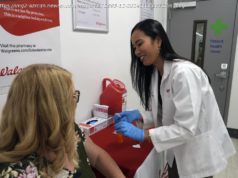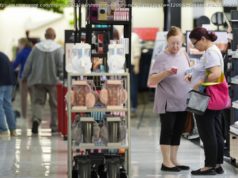Questions about how a limited supply of vaccine should be distributed have now found a new focus in rural America.
NASHVILLE, Tenn. — Rita Fentress was worried she might get lost as she traveled down the unfamiliar forested, one-lane road in rural Tennessee in search of a coronavirus vaccine. Then the trees cleared and the Hickman County Agricultural Pavilion appeared. The 74-year-old woman wasn’t eligible to be vaccinated in Nashville, where she lives, because there were so many health care workers to vaccinate there. But a neighbor told her the state’s rural counties had already moved to younger age groups and she found an appointment 60 miles away. “I felt kind of guilty about it,” she said. “I thought maybe I was taking it from someone else.” But late that February day, she said there were still five openings for the next morning. The U.S. vaccine campaign has heightened tensions between rural and urban America, where from Oregon to Tennessee to upstate New York complaints are surfacing of a real — or perceived — inequity in vaccine allocation. In some cases, recriminations over how scarce vaccines are distributed have taken on partisan tones, with rural Republican lawmakers in Democrat-led states complaining of “picking winners and losers,” and urbanites traveling hours to rural GOP-leaning communities to score COVID-19 shots when there are none in their city. In Oregon, state GOP lawmakers walked out of a Legislative session last week over the Democratic governor’s vaccine plans, citing rural vaccine distribution among their concerns. In upstate New York, public health officials in rural counties have complained of disparities in vaccine allocation and in North Carolina, rural lawmakers say too many doses were going to mass vaccine centers in big cities. In Tennessee, Missouri and Alabama, a dearth of shots in urban areas with the greatest number of health care workers has led senior citizens to snap up appointments hours from their homes. The result is a hodgepodge of approaches that can look like the exact opposite of equity, where those most likely to be vaccinated are people with the savvy and means to search out a shot and travel to wherever it is. “It’s really, really flawed,” said Amesh Adalja, a senior scholar at the Johns Hopkins Center for Health Security, who noted there are even vaccine hunters who will find a dose for money. “Ideally, allocations would meet the population’s needs.” With little more than general guidance from the federal government, states have taken it upon themselves to decide what it means to distribute the vaccine fairly and reach vulnerable populations.






